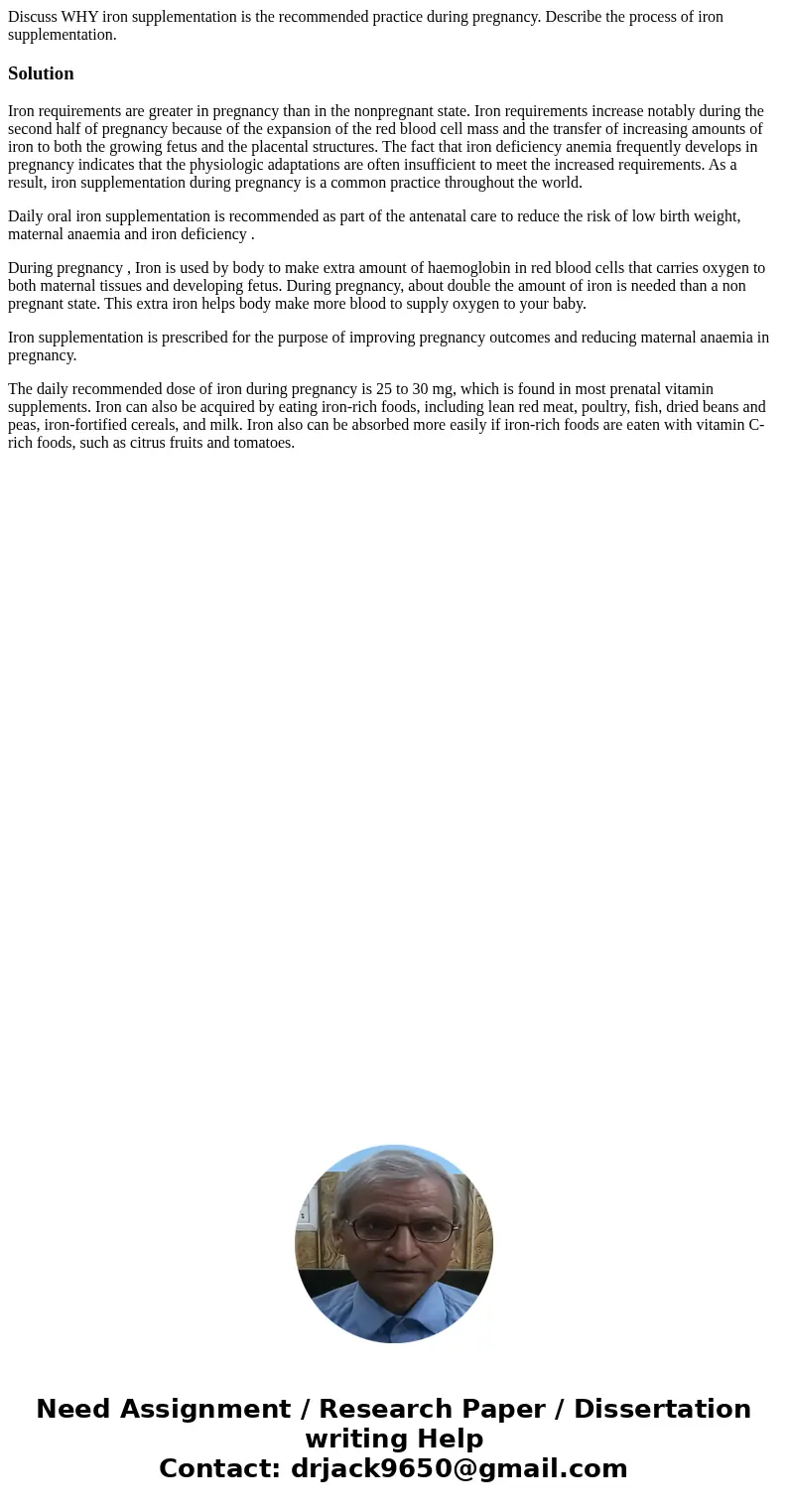Discuss WHY iron supplementation is the recommended practice
Discuss WHY iron supplementation is the recommended practice during pregnancy. Describe the process of iron supplementation.
Solution
Iron requirements are greater in pregnancy than in the nonpregnant state. Iron requirements increase notably during the second half of pregnancy because of the expansion of the red blood cell mass and the transfer of increasing amounts of iron to both the growing fetus and the placental structures. The fact that iron deficiency anemia frequently develops in pregnancy indicates that the physiologic adaptations are often insufficient to meet the increased requirements. As a result, iron supplementation during pregnancy is a common practice throughout the world.
Daily oral iron supplementation is recommended as part of the antenatal care to reduce the risk of low birth weight, maternal anaemia and iron deficiency .
During pregnancy , Iron is used by body to make extra amount of haemoglobin in red blood cells that carries oxygen to both maternal tissues and developing fetus. During pregnancy, about double the amount of iron is needed than a non pregnant state. This extra iron helps body make more blood to supply oxygen to your baby.
Iron supplementation is prescribed for the purpose of improving pregnancy outcomes and reducing maternal anaemia in pregnancy.
The daily recommended dose of iron during pregnancy is 25 to 30 mg, which is found in most prenatal vitamin supplements. Iron can also be acquired by eating iron-rich foods, including lean red meat, poultry, fish, dried beans and peas, iron-fortified cereals, and milk. Iron also can be absorbed more easily if iron-rich foods are eaten with vitamin C-rich foods, such as citrus fruits and tomatoes.

 Homework Sourse
Homework Sourse